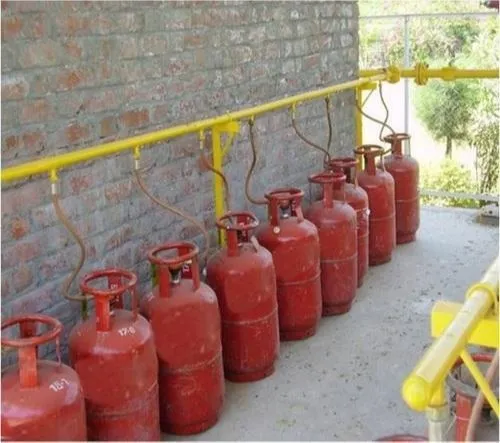In a groundbreaking decision, the Kenyan Cabinet has given the green light to a plan that will require all citizens to incorporate Liquified Petroleum Gas (LPG) pipes and taps into their building designs before approval. This move, ratified on a Monday session, aims to revolutionize the way Kenyans cook and address environmental and public health concerns.
State House, in a press release, disclosed the government's comprehensive approach to this transition. Among the key initiatives are the establishment of common-user LPG import terminals, the distribution of subsidized LPG cylinders to low-income households, and the promotion of LPG usage in various institutions through partnerships with financial institutions.
The primary objectives behind these measures are to reduce consumer prices, enhance public safety, and make significant contributions to both public health and environmental sustainability, as stated in the Cabinet dispatch.
The State House also emphasized that compliance with this new law will be a prerequisite for obtaining government approval for any housing project, including those developed under the Affordable Housing Program.
This transformative shift is part of the Cooking Gas Growth Policy, recently approved by the Cabinet, which aims to transition Kenyan households from traditional and less efficient cooking fuels to modern and eco-friendly LPG.
The Cabinet underscored the pressing need for this transition, noting that currently, a staggering 70 percent of Kenyan households rely on inefficient and polluting biomass and kerosene for cooking.
This recent Cabinet decision aligns with President Ruto's earlier promise to reduce LPG prices by nearly half. In April, the government revealed plans to lobby Members of Parliament to eliminate three taxes, as proposed in the Finance Bill of 2023, in order to make LPG more affordable.
The government's intentions included exempting cooking gas from the 8 percent Value Added Tax (VAT), the 3.5 percent Import Declaration Fees, and the 2 percent Railway Development Levy.
Additionally, during the Cabinet meeting held at Kisumu State Lodge, the executive resolved to forgive a Ksh117 billion debt owed by public sugar mills to the government, pending Parliament approval.
In light of this decision, the Treasury is actively working on waiving tax penalties and interest within a 30-day period. The government is expected to announce plans for settling farmers' arrears within three months and will also table proposals for the leasing of five state-owned sugar mills within a similar timeframe.

